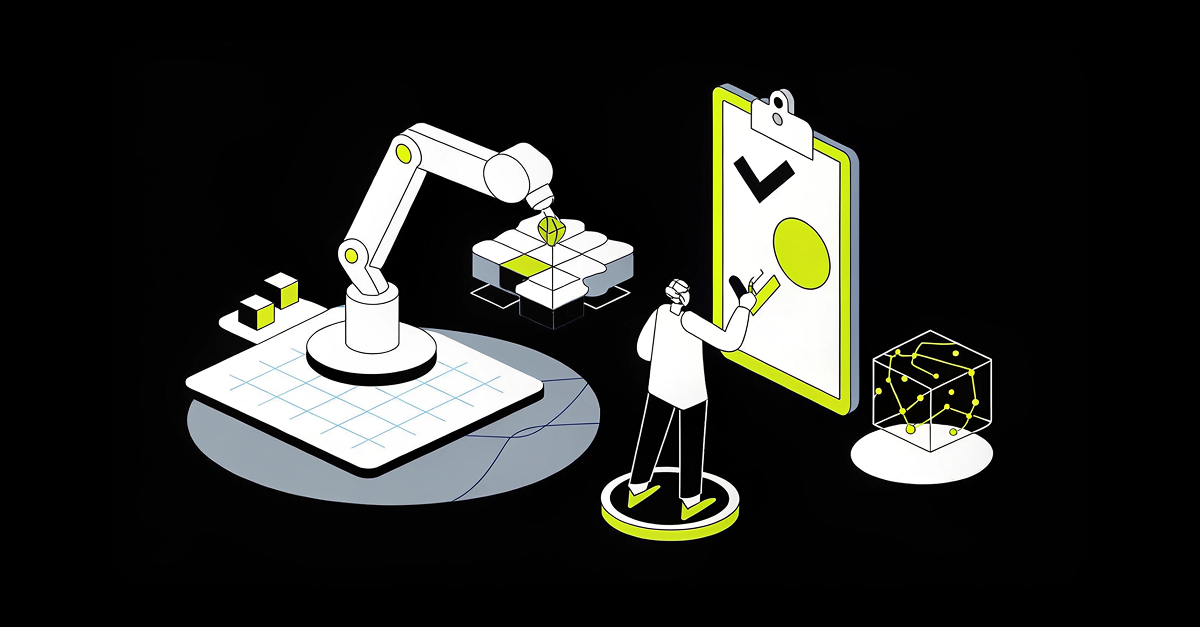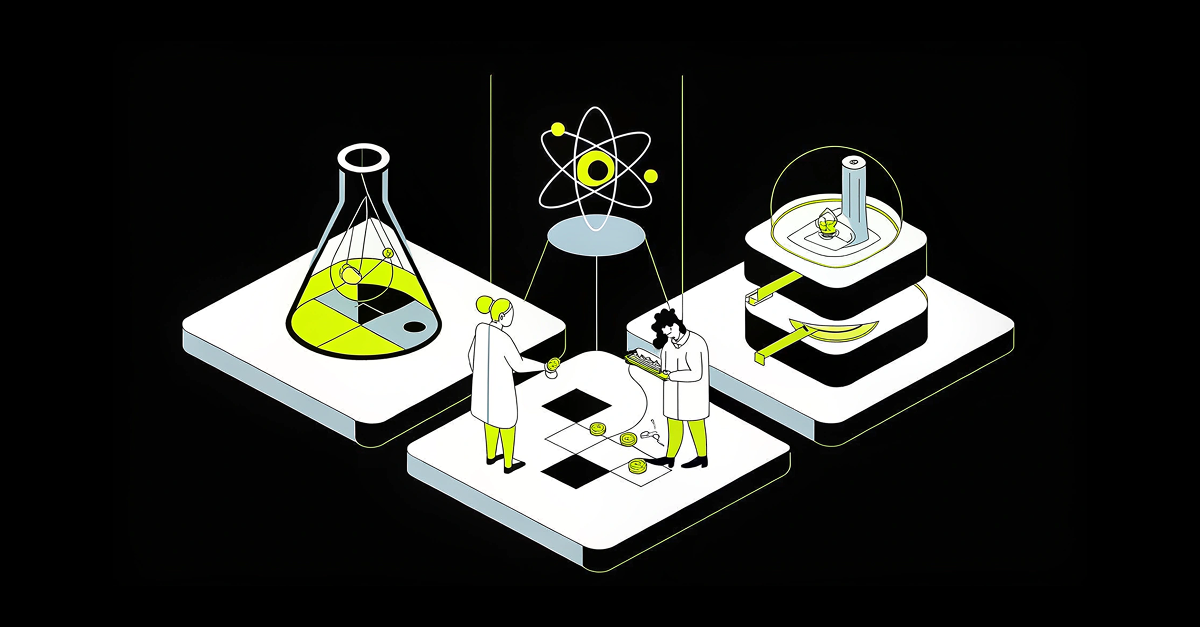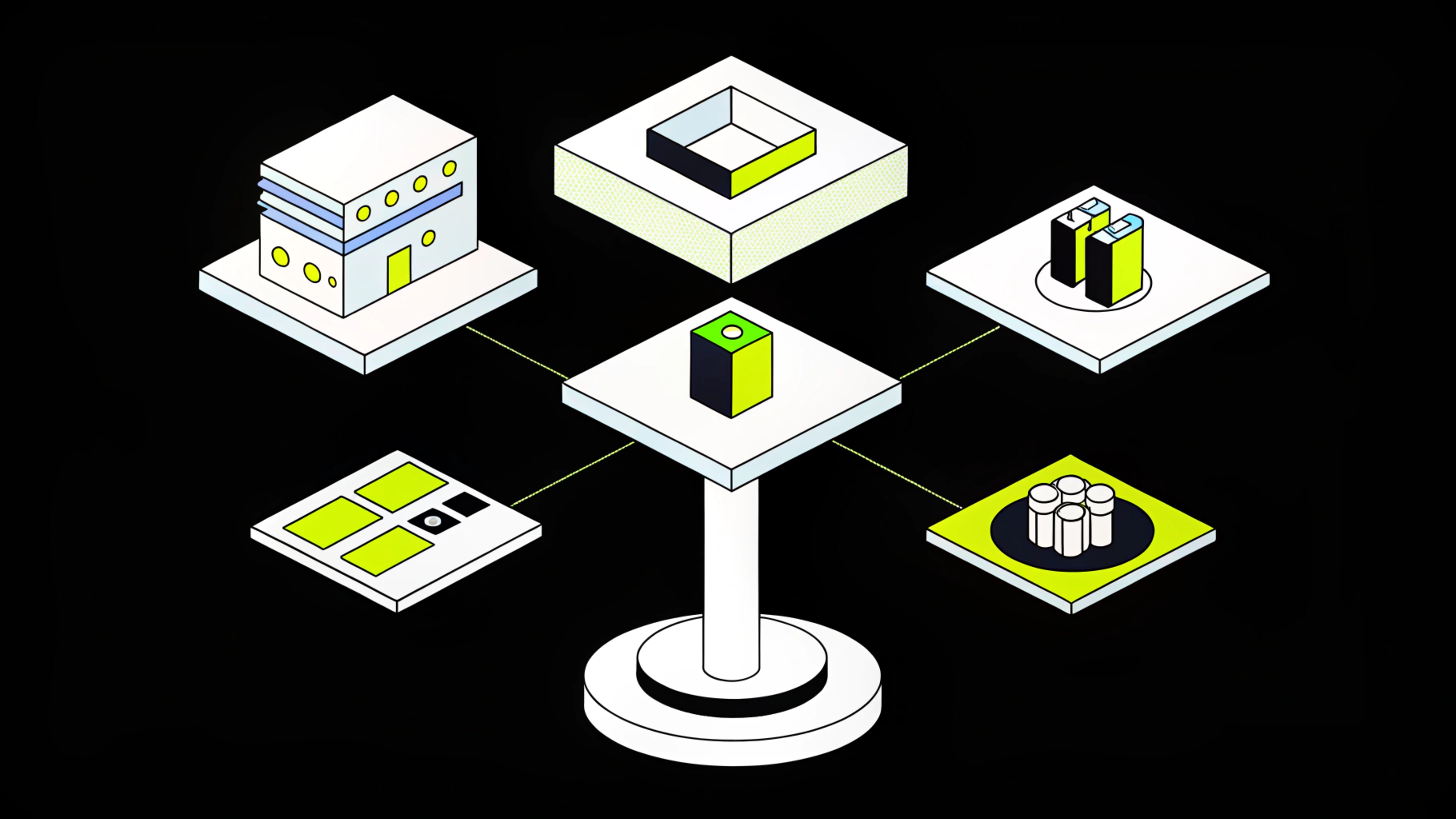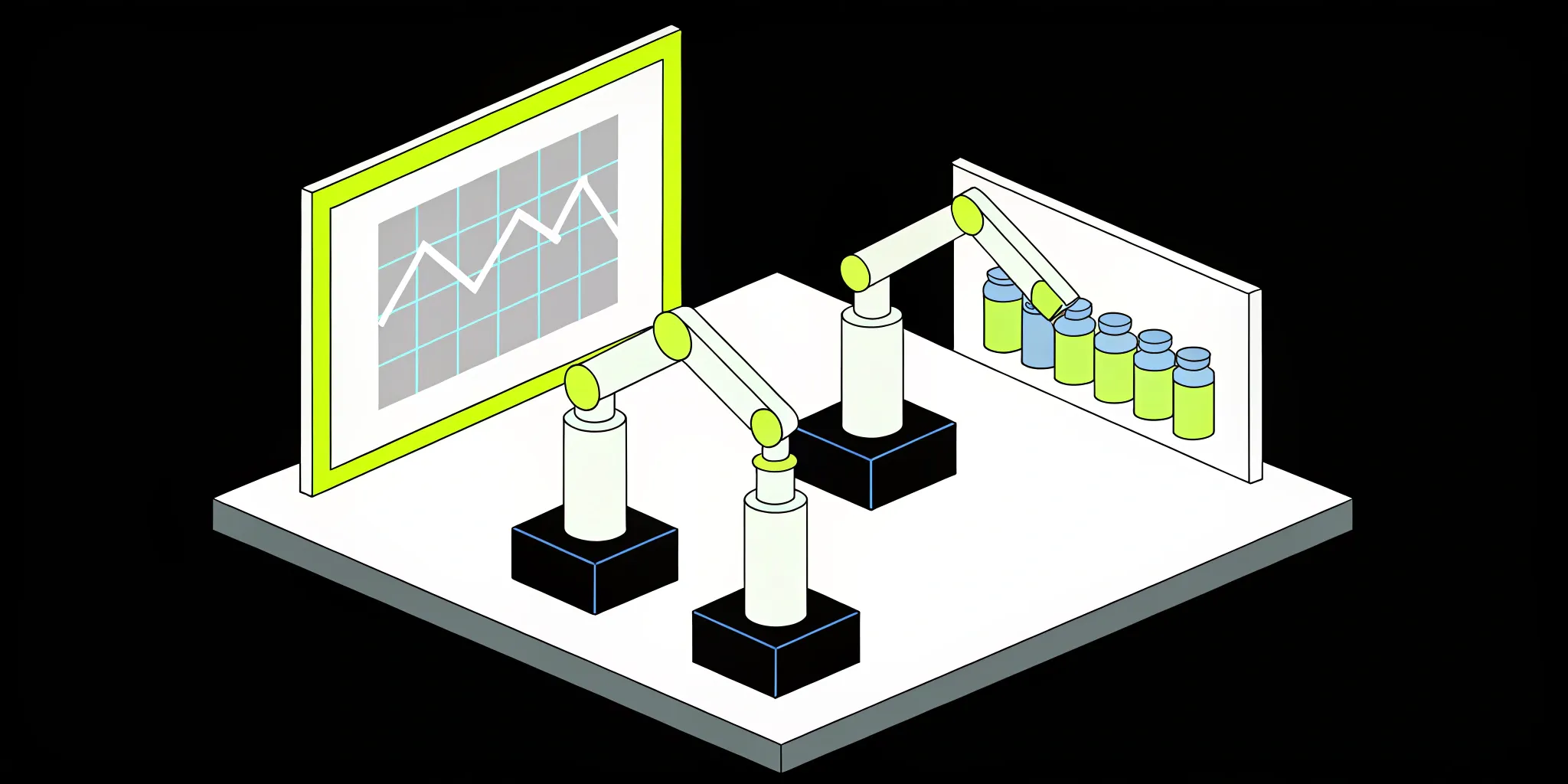What Are AI Steroids? A Guide to Faster AI Projects

The phrase ‘ai steroids’ is intentionally provocative. It suggests a massive leap in power and performance, which is exactly what insurtech AI promises. The insurance industry is swimming in unstructured data—think call transcripts, claim photos, and long email chains. Making sense of it all requires a serious performance enhancer. But like real steroids, there are risks. How do you get the benefits without the downsides? Using a real-world case study, we'll explore how to achieve that balance, starting with smart insurtech data labeling to build a responsible and powerful AI practice.
ML and AI can structure this information and introduce automation into the claims process. Working with high-quality structured data, insurance teams can transform manual, time-consuming processes into an efficient data-driven operation.
A leading insurtech SaaS platform selected Cake to manage its AI infrastructure. Powered by Cake, this white-labeled Insurtech product digitizes and automates all the steps of the insurance claims process.
Key takeaways
Cake saves a leading insurtech vendor “at least half a million dollars purely on headcount.”
Cake sped up the time to launch a new AI-powered product by several months.
“Cake is like DevOps on steroids.”
Building with a small team
The insurtech team started working with Cake early, initially deploying only a few services as Python applications.
“We were a super lean team when we started working with Cake,” stated their CTO. “We wanted to scale our work without building a large MLOps practice.”
As a starting point, the team needed a stable and highly scalable way to deploy an ML classifier model and expose it via an HTTP endpoint.
Given the need for high uptime, scalability, and the sensitivity of insurance data, this service needed to be secure, stable, and able to handle variable request volume. It also needed to be in production as soon as possible. The team approached Cake as a partner to drive the project to production quickly with confidence.
What we mean when we talk about AI and steroids
When our client’s CTO said, “Cake is like DevOps on steroids,” it was a powerful metaphor that really stuck with us. You hear this phrase a lot when people talk about technology that dramatically improves performance, but what does it actually mean? The comparison is especially interesting because the acronym "AI" also appears in the medical world in conversations about steroids, though in a completely different context. Understanding both the literal definitions and the powerful metaphor helps clarify how a managed platform can amplify your team's efforts. It’s not about taking shortcuts, but about equipping your existing talent with superior tools to achieve results faster. By handling the complex underlying infrastructure, a solution like Cake allows your team to focus on building and deploying AI applications that drive real business value, giving your development process a significant performance enhancement.
The medical definitions of "AI"
Before we get into the metaphor, it’s worth looking at a fascinating coincidence. In medicine, the acronym “AI” can refer to a couple of conditions, and surprisingly, they both have connections to steroids. This isn't what people mean when they talk about artificial intelligence, of course, but the overlap is too interesting to ignore. It adds another layer to the phrase and highlights how language can have multiple meanings depending on the context.
Aromatase inhibitors (AIs)
First up are Aromatase Inhibitors, often shortened to AIs. These are medications that block an enzyme called aromatase, which is responsible for converting androgens into estrogens. According to scientific research, by inhibiting this process, AIs effectively lower the amount of estrogen in the body and are primarily used to treat specific types of breast cancer.
Adrenal insufficiency (AI)
The second medical "AI" is Adrenal Insufficiency. This is a condition where the adrenal glands don't produce enough of certain crucial hormones. A primary cause of this condition is the long-term use of prescribed steroid medications, which directly links the term "steroids" to this form of "AI."
The metaphor: AI as a performance enhancer
Now for the meaning everyone is actually referring to in tech. When someone says a tool or process is "on steroids," they mean it’s an exponentially more powerful, faster, and more effective version of the original. In this sense, artificial intelligence acts as a performance enhancer for human capabilities and business operations. It takes existing processes and supercharges them, allowing teams to achieve outcomes that would otherwise be impossible.
Boosting innovation in science and business
In business and science, AI tools are used to dramatically improve what people can accomplish. Much like steroids can enhance an athlete's physical performance, AI enhances cognitive and analytical performance. It can process massive datasets to find patterns and power predictive analytics for smarter business decisions, allowing a small team to have the impact of a much larger one. This is the core of the performance enhancement metaphor.
AI's role in sports science and education
The metaphor extends clearly into fields like sports and education. In sports science, AI analyzes athlete data to create optimal training regimens and prevent injuries. It’s about using intelligence to achieve peak performance ethically. As one expert put it, using AI for improvement is about working smarter for sustainable progress, not just looking for a temporary fix.
Configuring the AI Stack for Insurtech
Cake enables AI/ML teams to configure the right stack to move their AI use cases into production with confidence. The team deployed their classifier using an open source stack:
Ray Serve: Used to deploy the classifier model into production
XGBoost: Optimized distributed gradient boosting library
sciKit-learn: Machine learning library
Evidently: Used to track feature drift and prediction drift over time. This information is used to determine when to retrain models.
CatBoost: High-performance open source library for gradient boosting on decision trees; used for the majority of boosting within this use case.
LightGBM: Gradient boosting framework that uses tree-based learning algorithms
Pandas: Open source data analysis and manipulation framework
Grafana: Monitoring data for the team’s RayServe implementation, showing how much memory is used, latency, and other associated system performance metrics.
OpenCost: Used to examine costs per category and conveniently optimize costs as needed.
The AI landscape is crowded, complex, and changes quickly. The Cake team offered guidance on which technologies would best fit the requirements at each step.
By providing expert recommendations on common challenges, Cake enabled the Insurtech team to focus on more strategic problems. As their CTO described, “One of the effective accelerators of working with Cake—especially in the early days —was following the pattern. Let’s work on the pieces that are distinct and meaningful, and let’s not reinvent the wheel where we don't need to.”
How AI models can speed up data analysis and decision-making
The insurance industry is swimming in unstructured data. Information pours in from phone agent notes, photos from incident sites, and long text chains. AI and machine learning models excel at structuring this kind of information. They can automatically organize and analyze it, transforming a manual, time-consuming process into an efficient, data-driven operation. Instead of spending hours trying to make sense of messy data, teams can get straight to the high-quality insights needed to make faster, more accurate decisions, turning raw information into a real asset.
With organized data and automated workflows, decision-making naturally gets faster. For the insurtech team we worked with, this wasn't just a small improvement—it was a game-changer. They were able to launch their new AI-powered product several months ahead of schedule. Having expert guidance on the right technology stack meant they could avoid common infrastructure headaches. This freed up their team to focus on what they do best: solving strategic business problems instead of getting bogged down in the backend.
The ethical concerns and societal impact of powerful AI
The "steroids" metaphor is powerful because it isn't just about performance; it also brings up important questions about fairness, authenticity, and risk. As AI becomes more capable, it's crucial for any organization implementing it to think through the ethical implications. This isn't about slowing down innovation, but about building it responsibly. Addressing these concerns head-on ensures that the powerful tools you build are used for good and that you maintain the trust of your customers and the public. It’s a conversation that moves beyond what AI *can* do and focuses on what it *should* do.
The erosion of trust from realistic fake content
One of the most significant challenges with advanced AI is its ability to create incredibly realistic fake content, from images to text. This makes it increasingly difficult to know what's real online. As one person on Reddit pointed out, it’s similar to the world of professional bodybuilding, where it's nearly impossible to tell who is using steroids and who isn't. This uncertainty forces us to rely on our gut feelings to determine authenticity, which can erode the foundation of trust we have in the information we consume daily. For businesses, this means being transparent about the use of AI and establishing clear guidelines to avoid misleading customers.
Unfair advantages and the access gap
Just as steroids can create an uneven playing field in sports, powerful AI tools can create a divide between those who have access to them and those who don't. This "access gap" can lead to significant unfair advantages in business, research, and even education. While AI can be used to analyze athlete performance or personalize learning plans, there are valid concerns about the downsides. Democratizing access to powerful, open-source AI tools is one way to help level this playing field, allowing smaller companies and teams to compete with larger enterprises without having to build everything from scratch.
Privacy risks and becoming too reliant on AI
AI models are often trained on massive datasets, which raises immediate privacy concerns, especially when personal information is involved. For example, AI platforms used in education can collect vast amounts of student data, creating potential risks if that data is misused or breached. Beyond privacy, there's also the risk of becoming too dependent on AI for decision-making. Over-reliance can dull our own critical thinking skills and create vulnerabilities if an AI system is flawed, biased, or fails entirely. It's essential to treat AI as a tool to augment human intelligence, not replace it.
Specific applications of "AI steroids" today
While it's important to consider the ethical landscape, it's also exciting to see how AI is already acting as a performance enhancer in positive and practical ways. The "AI on steroids" concept isn't just a future hypothetical; it's happening right now across various industries. From saving lives in hospitals to changing how we interact with our own digital images, these applications show the tangible benefits of augmenting human capabilities with powerful AI. These real-world examples provide a clearer picture of how AI is reshaping our world for the better.
Predicting patient needs in medicine
In healthcare, AI is giving medical professionals superpowers. For instance, researchers have developed AI models that can analyze medical images, like CT scans, with incredible speed and accuracy. One specific model can predict which COVID-19 patients are likely to require steroid treatments, helping doctors intervene earlier and improve patient outcomes. This is a perfect example of AI acting as a performance-enhancing tool, allowing doctors to make faster, more informed decisions that can ultimately save lives. It doesn't replace the doctor's expertise but instead provides an incredibly powerful analytical tool.
Consumer photo filters and motivational tools
On the consumer side, AI is changing how we see and present ourselves. Apps like GigaBody use AI as a kind of "muscle filter," showing you what your body could look like with more muscle or less fat. While it's a fun application, it also serves as a powerful motivational tool for people on a fitness journey. This type of technology puts a simplified version of AI-powered image manipulation directly into the hands of consumers, demonstrating how accessible and widespread these "performance-enhancing" tools have become in our daily lives, shaping everything from social media posts to personal health goals.
Cake as DevOps for AI
“Cake is like DevOps on steroids.”
—Founding ML Engineer, Insurtech Company
The insurtech team has used Cake to deploy various ML models, Kubeflow pipelines, and even as a serving mechanism for a generative AI chatbot the team is developing. As their founding ML engineer outlined, “Cake is like a data platform combined with a serving platform, all-in-one.”
Their CTO continued, “Cake is a real force multiplier for us on MLOps. Beyond that, they’re an effective strategic partner and collaborator on our new initiatives as we push into new spaces.”
Cutting months off AI development timelines
“With Cake, we are conservatively saving at least half a million dollars purely on headcount.”
—CTO, Insurtech company
By providing platform capabilities and strategic guidance, Cake has enabled the Insurtech team to do more with less—and most importantly, to deploy their products faster.
Working with Cake saved the team months, according to their CTO. “We didn’t have to hire specialized MLOps engineers. That recruiting would take six weeks optimistically, but more conservatively, it could take three months to stand up that initial team and then another couple of months to stand up the actual platform.”
For example, the team uses Ray Serve and Evidently to monitor drift. Their Evidently server reads drift statistics on a periodic basis, a process managed by a Kubeflow pipeline also deployed with Cake.
“We would otherwise have had to build a whole serving platform ourselves—that’s at least a month of work,” their founding ML engineer described, “and then a whole job scheduling system and a whole data platform—that’s another month at least. We got that all from the get-go with Cake.”
“Without Cake, we would have had to spend months of engineering to figure out how to build all this stuff ourselves.”
—Founding ML Engineer, Insurtech Company
Flexible and collaborative AI project management
The Insurtech AI/ML team works both in a cloud environment as well as locally. Cake enables this work pattern, allowing teams to benefit from cloud resources when needed. As their founding ML engineer explained, “Whenever I was fine-tuning the vision model, we ran it on the Cake platform. Having 64 gigabytes of memory (or more) on-demand was super convenient.”
As the team has grown, they’ve also used Cake to better collaborate with one another. “We can all look at each other’s notebooks,” their founding ML engineer said. “It’s multi-user and infinitely better than a local Jupyter server.”
Ongoing partnership and what’s next
Since partnering with Cake, the Insurtech company has scaled considerably. For their insurance customers, better user experiences lead to better customer retention. Additionally, more efficiency for end users leads to cost savings for the business. Excellent incentive alignment exists to transform an inefficient manual industry into a sector that is far more automated and efficient.
Their CTO detailed the road ahead: "We’re very appreciative of the partnership with Cake. They’ve clearly been effective partners through our initial phase, and we have a ton of confidence that we’ll be able to evolve well together.”
Using a production-ready platform to get results efficiently
The insurtech team’s story highlights a common challenge: how to scale AI initiatives without the time and expense of building a large, specialized MLOps team from scratch. Instead of dedicating months to hiring and internal development, they chose a more direct route. By leveraging a production-ready platform, they could bypass the foundational infrastructure build-out and focus their energy on what truly mattered—their core product. This strategic decision allowed them to get to market faster and more efficiently with the lean team they already had in place.
This approach delivered significant, measurable results. The company’s CTO estimates they are “conservatively saving at least half a million dollars purely on headcount.” This efficiency also translated to speed, cutting months off their development timeline. As their founding ML engineer explained, going it alone would have meant spending “months of engineering to figure out how to build all this stuff ourselves.” Using a platform like Cake provided the essential infrastructure from day one, turning a complex, long-term project into a manageable and successful launch.
Frequently Asked Questions
My team is small. How does a platform like Cake help us get an AI project running without hiring more people? Think of it as having an expert MLOps team on demand. Instead of your engineers spending months figuring out how to build, secure, and scale the underlying infrastructure, Cake provides that foundation from the start. This allows your team to focus entirely on developing the AI models that solve your specific business problems, effectively multiplying their impact without increasing your headcount.
What's the real advantage of using a managed platform instead of building our own AI infrastructure? While you certainly could build your own infrastructure, the key advantage comes down to speed and focus. Building a production-ready AI stack from scratch involves a lot of trial and error, specialized hiring, and months of engineering time before you can even start deploying your first model. A managed platform gives you a reliable, proven path to production on day one, letting you skip the foundational headaches and get your product to market much faster.
Is Cake just a bundle of open-source tools, or is there more to it? It’s much more than just a bundle. While we use best-in-class open-source technologies, our real value lies in how we integrate, manage, and maintain them as a cohesive platform. We handle the complex work of ensuring all the components work together seamlessly for security, monitoring, and scalability. We also provide strategic guidance, helping you choose the right tools for your specific use case so you're not left reinventing the wheel.
The case study focuses on insurtech. Can Cake help businesses in other industries? Absolutely. The challenges highlighted in the article—like dealing with massive amounts of unstructured data, needing to deploy models quickly, and wanting to operate with a lean team—are common in many fields. Whether you're in finance, healthcare, logistics, or retail, our platform is designed to solve the core infrastructure problems that stand between a great AI idea and a successful launch.
The 'AI on steroids' metaphor brings up some ethical questions. How does Cake help teams build AI responsibly? That's an important point. Building powerful AI comes with a responsibility to be thoughtful. A key part of that is having visibility into how your models are performing after they're deployed. Our platform includes tools for monitoring things like model drift, which helps you see if a model's predictions are becoming less accurate or fair over time. This kind of transparency is fundamental to maintaining and building AI systems you can trust.
Related Articles
About Author

Cake Team
More articles from Cake Team
Related Post

How a Materials Science Data Platform Saved a Year Building AI on Cake

Cake Team

Predicting Patient Outcomes Using the Industry’s Largest Cancer Imaging Dataset

Cake Team

How Ping Data Intelligence Tames Unstructured Data

Cake Team

Open Source Medical AI: A Beginner's Guide

Cake Team